Danhao Ding
Leveraging Meta-path Contexts for Classification in Heterogeneous Information Networks
Dec 18, 2020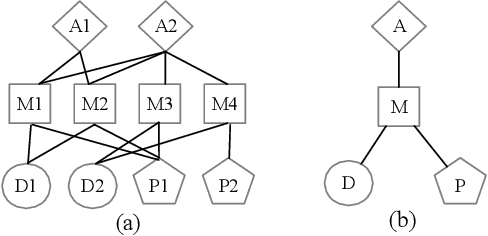
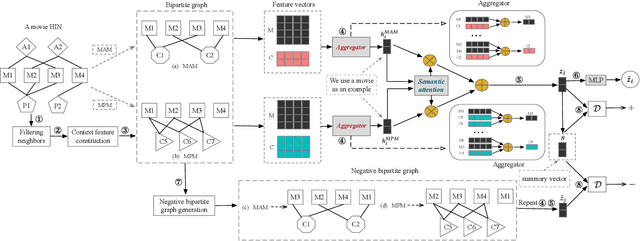
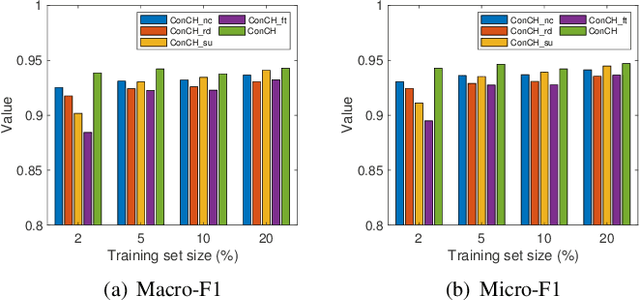
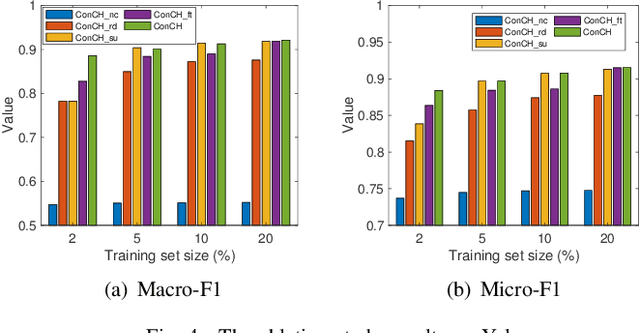
Abstract:A heterogeneous information network (HIN) has as vertices objects of different types and as edges the relations between objects, which are also of various types. We study the problem of classifying objects in HINs. Most existing methods perform poorly when given scarce labeled objects as training sets, and methods that improve classification accuracy under such scenarios are often computationally expensive. To address these problems, we propose ConCH, a graph neural network model. ConCH formulates the classification problem as a multi-task learning problem that combines semi-supervised learning with self-supervised learning to learn from both labeled and unlabeled data. ConCH employs meta-paths, which are sequences of object types that capture semantic relationships between objects. Based on meta-paths, it considers two sources of information for an object x: (1) Meta-path-based neighbors of x are retrieved and ranked, and the top-k neighbors are retained. (2) The meta-path instances of x to its selected neighbors are used to derive meta-path-based contexts. ConCH utilizes the above information to co-derive object embeddings and context embeddings via graph convolution. It also uses the attention mechanism to fuse the embeddings of x generated from various meta-paths to obtain x's final embedding. We conduct extensive experiments to evaluate the performance of ConCH against other 14 classification methods. Our results show that ConCH is an effective and efficient method for HIN classification.
Fast and Secure Distributed Nonnegative Matrix Factorization
Sep 07, 2020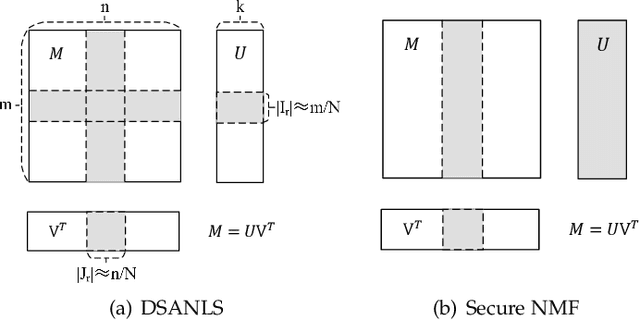

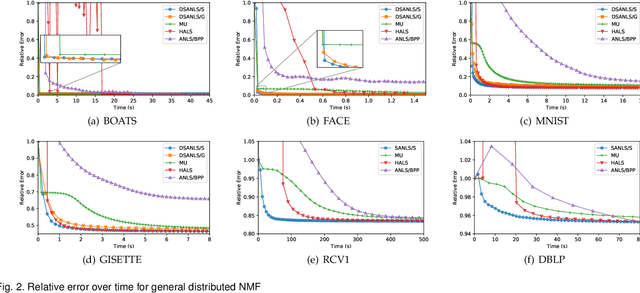

Abstract:Nonnegative matrix factorization (NMF) has been successfully applied in several data mining tasks. Recently, there is an increasing interest in the acceleration of NMF, due to its high cost on large matrices. On the other hand, the privacy issue of NMF over federated data is worthy of attention, since NMF is prevalently applied in image and text analysis which may involve leveraging privacy data (e.g, medical image and record) across several parties (e.g., hospitals). In this paper, we study the acceleration and security problems of distributed NMF. Firstly, we propose a distributed sketched alternating nonnegative least squares (DSANLS) framework for NMF, which utilizes a matrix sketching technique to reduce the size of nonnegative least squares subproblems with a convergence guarantee. For the second problem, we show that DSANLS with modification can be adapted to the security setting, but only for one or limited iterations. Consequently, we propose four efficient distributed NMF methods in both synchronous and asynchronous settings with a security guarantee. We conduct extensive experiments on several real datasets to show the superiority of our proposed methods. The implementation of our methods is available at https://github.com/qianyuqiu79/DSANLS.
 Add to Chrome
Add to Chrome Add to Firefox
Add to Firefox Add to Edge
Add to Edge